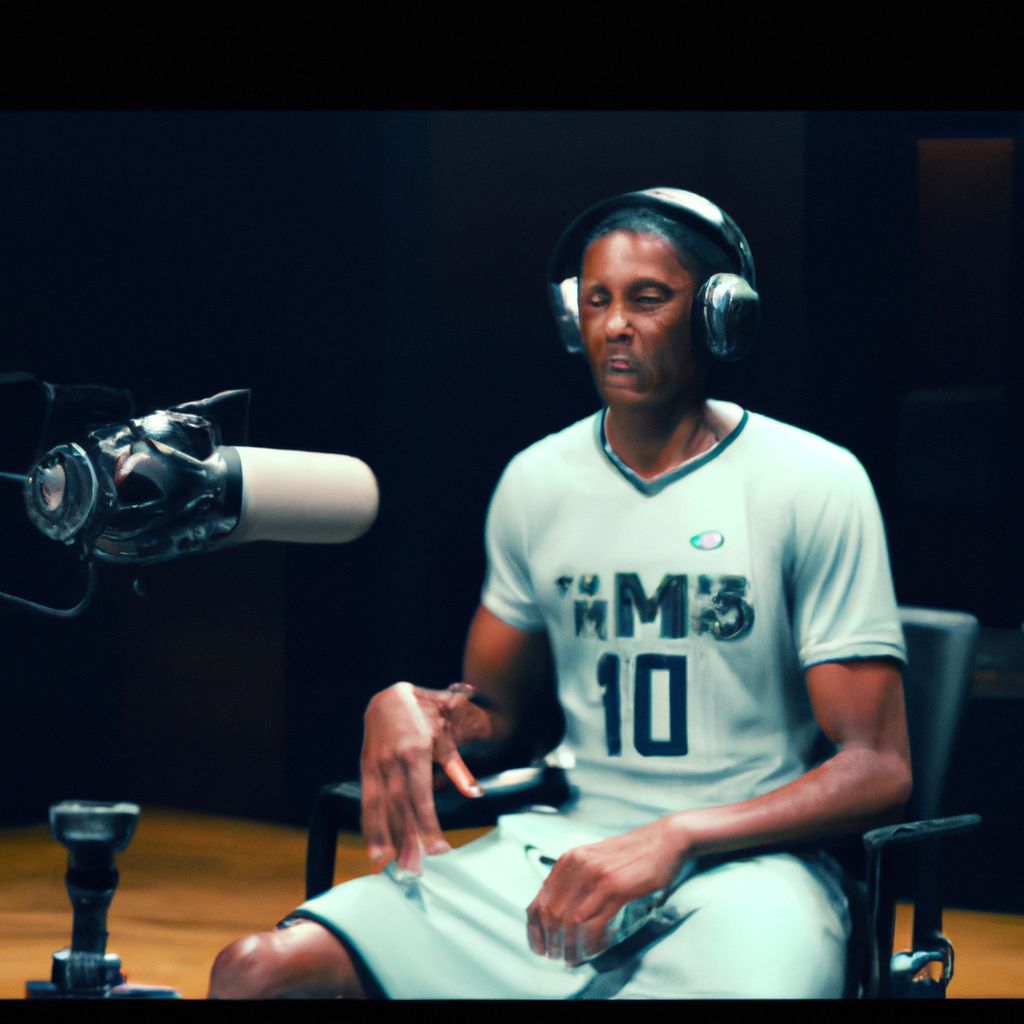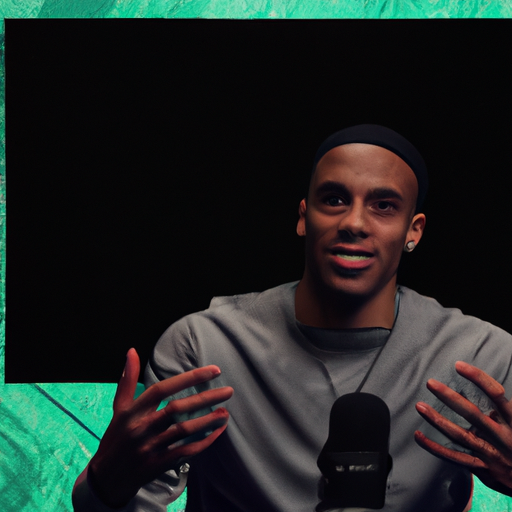Rajon Rondo unveils how he came to know about his ACL injury via radio

The Impact of Rajon Rondo’s ACL Injury on his Career
Rajon Rondo, the talented point guard known for his exceptional court vision and playmaking abilities, has had his fair share of ups and downs throughout his basketball career. One of the most significant setbacks he faced was when he suffered a devastating ACL injury that would have a profound impact on his future in the sport.
It was a fateful day in January 2013 when Rondo’s life took an unexpected turn. The Boston Celtics were playing against the Atlanta Hawks, and Rondo was in the midst of another impressive performance. Little did he know that this game would mark a turning point in his career.
As the game progressed, Rondo felt a sudden jolt of pain in his knee. He knew something was wrong, but the severity of the injury was yet to be determined. After being taken out of the game, Rondo anxiously awaited the results of his medical examination.
To his surprise, Rondo did not receive the news of his injury from a doctor or a team official. Instead, he learned about the extent of his ACL injury through a radio broadcast. The shock and disbelief he felt in that moment were immeasurable. It was a surreal experience for a player of his caliber to find out such life-altering news in such an impersonal manner.
The impact of Rondo’s ACL injury on his career cannot be overstated. Prior to the injury, he was considered one of the best point guards in the league, known for his exceptional court vision, defensive prowess, and ability to elevate the play of his teammates. Rondo was a key component of the Celtics’ success, and his absence would be sorely felt.
The road to recovery was long and arduous for Rondo. He underwent surgery to repair his torn ACL and embarked on a grueling rehabilitation process. The physical pain was only part of the battle; the mental and emotional toll of being sidelined for an extended period was equally challenging.
During his recovery, Rondo faced numerous setbacks and obstacles. He had to relearn basic basketball skills and regain his confidence on the court. The fear of reinjury loomed over him, and doubts about his ability to return to his previous form crept into his mind.
Despite the challenges, Rondo persevered. He dedicated countless hours to his rehabilitation, working tirelessly to regain his strength and agility. Slowly but surely, he made progress and eventually returned to the court.
However, the impact of the ACL injury on Rondo’s career was undeniable. While he continued to display flashes of brilliance, his overall performance and consistency were not the same. The injury had taken a toll on his athleticism and explosiveness, limiting his effectiveness on both ends of the court.
Nevertheless, Rondo’s resilience and basketball IQ remained intact. He adapted his game to compensate for his physical limitations, relying more on his basketball intelligence and playmaking abilities. Despite not being the same player he once was, Rondo continued to contribute to his teams and make a positive impact on the court.
In conclusion, Rajon Rondo’s ACL injury had a profound impact on his career. From the shocking manner in which he learned about the injury to the grueling recovery process, Rondo faced numerous challenges along the way. While he may not have returned to his previous form, his resilience and adaptability allowed him to continue making valuable contributions to the game he loves. Rondo’s story serves as a reminder of the unpredictable nature of sports and the strength of the human spirit in overcoming adversity.
The Emotional Journey of Rajon Rondo after Discovering his ACL Injury

Rajon Rondo, the talented point guard for the Los Angeles Lakers, recently opened up about the emotional journey he went through after discovering his ACL injury. In a candid interview, Rondo revealed that he first learned about the severity of his injury through a radio broadcast. This unexpected and impersonal way of receiving such devastating news added an extra layer of shock and disbelief to an already difficult situation.
Rondo, known for his resilience and determination on the court, described the moment he heard the news as a surreal experience. He had been dealing with knee discomfort for some time, but the severity of the injury was still unknown to him. As he listened to the radio broadcast, he couldn’t believe what he was hearing. The realization that his season was over and that he would have to undergo surgery hit him like a ton of bricks.
The emotional rollercoaster that followed was intense. Rondo admitted feeling a mix of anger, frustration, and sadness. He had worked tirelessly to get back on the court after previous injuries, and now he faced another setback. The uncertainty of the recovery process and the fear of not being able to perform at his best again weighed heavily on his mind.
Despite the initial shock, Rondo quickly shifted his focus to the road to recovery. He sought out the best medical professionals and put together a comprehensive rehabilitation plan. The support from his teammates, coaches, and the Lakers organization played a crucial role in helping him stay positive during this challenging time.
Throughout his recovery, Rondo found solace in his love for the game. Basketball had always been his passion, and he used it as a driving force to push through the pain and frustration. He dedicated himself to his rehabilitation exercises, constantly pushing his limits to regain his strength and mobility.
The emotional journey was not without its ups and downs. There were moments of doubt and frustration when progress seemed slow, but Rondo remained determined. He leaned on his support system, including his family and close friends, who provided him with the encouragement and motivation he needed to keep going.
As the months passed, Rondo’s hard work paid off. He gradually regained his confidence and felt his body getting stronger. The setbacks and challenges he faced along the way only fueled his determination to come back stronger than ever.
Finally, after months of grueling rehabilitation, Rondo made his long-awaited return to the court. The emotions he felt that day were overwhelming. The cheers from the crowd, the support from his teammates, and the feeling of being back doing what he loved brought tears to his eyes.
Rondo’s journey serves as a reminder of the resilience and strength of the human spirit. Despite the initial shock and emotional turmoil, he never gave up. He faced his injury head-on, worked tirelessly to recover, and ultimately triumphed over adversity.
Today, Rondo continues to be an integral part of the Lakers’ success. His story is a testament to the power of determination and the ability to overcome even the most challenging obstacles. As he looks back on his emotional journey, he hopes to inspire others facing similar setbacks to never lose hope and to keep fighting for their dreams.
The Role of Media in Rajon Rondo’s ACL Injury Revelation
Rajon Rondo, the talented point guard for the Los Angeles Lakers, recently revealed a shocking detail about how he learned of his ACL injury. In an interview with ESPN, Rondo disclosed that he found out about the severity of his injury through a radio broadcast. This revelation sheds light on the significant role that media plays in the lives of professional athletes, both in terms of disseminating information and impacting their mental and emotional well-being.
The incident occurred during Rondo’s time with the Boston Celtics. He had just suffered a knee injury during a game and was awaiting the results of an MRI scan. As he anxiously awaited the news, Rondo turned on the radio to distract himself. Little did he know that he would soon hear the devastating news about his ACL tear from the very medium he sought solace in.
This incident highlights the power of media in delivering news, even to those directly involved. In today’s digital age, information travels at lightning speed, and athletes are not immune to its effects. Rondo’s experience serves as a reminder that athletes, despite their fame and success, are still vulnerable to the same emotions and uncertainties as anyone else.
The impact of media on athletes’ mental and emotional well-being cannot be understated. In Rondo’s case, the shock of learning about his injury through a radio broadcast undoubtedly added to the already overwhelming emotions he was experiencing. The media’s ability to shape an athlete’s perception of their own situation is a double-edged sword. While it can provide valuable information, it can also exacerbate anxiety and stress.
Furthermore, the media’s role in disseminating information about injuries raises questions about privacy and consent. Should athletes have the right to control how and when their injuries are made public? Rondo’s experience suggests that this control can be easily taken away, leaving athletes feeling exposed and vulnerable. It is crucial for athletes and their teams to have open lines of communication with the media to ensure that sensitive information is handled with care and respect.
The incident also highlights the need for athletes to have a strong support system in place. Rondo’s revelation about his ACL injury underscores the importance of having a trusted circle of family, friends, and medical professionals who can provide guidance and support during challenging times. This support system can help athletes navigate the media landscape and shield them from unnecessary stress and anxiety.
In conclusion, Rajon Rondo’s revelation about learning of his ACL injury through a radio broadcast sheds light on the significant role that media plays in the lives of professional athletes. The incident underscores the power of media in delivering news, impacting athletes’ mental and emotional well-being, and raising questions about privacy and consent. It serves as a reminder that athletes, despite their fame and success, are still susceptible to the same emotions and uncertainties as anyone else. Moving forward, it is crucial for athletes and their teams to prioritize open communication with the media and establish a strong support system to navigate the challenges that come with being in the public eye.

